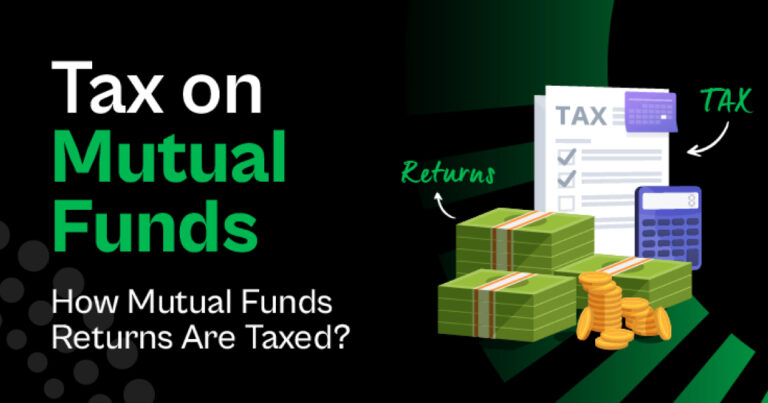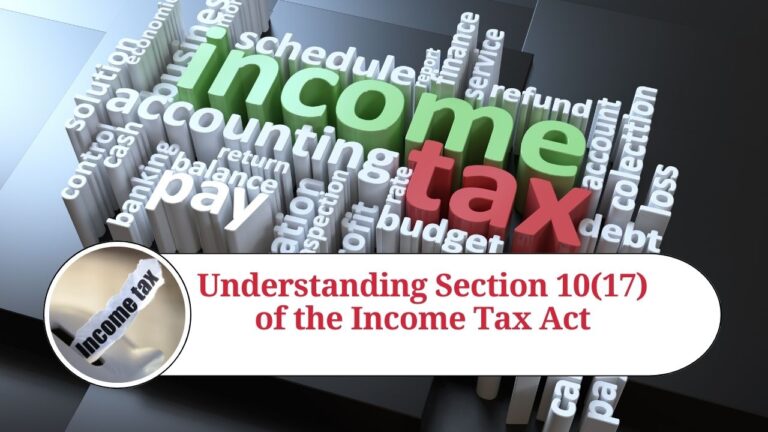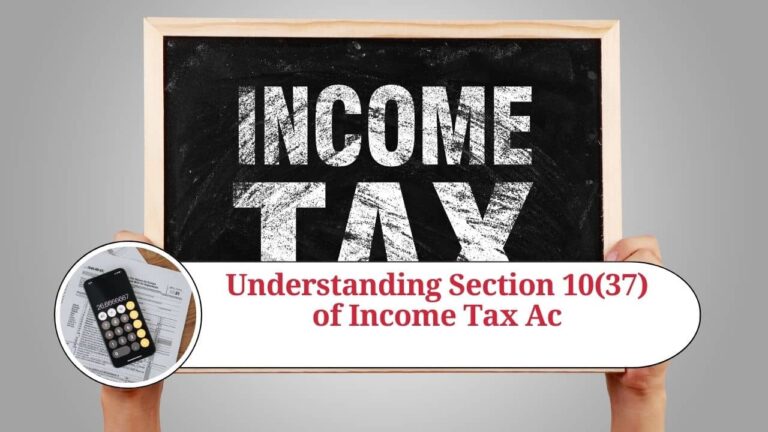Understanding Tax Exemptions under Section 10(25) of the Income Tax Act
Tax exemptions play a crucial role in financial planning, especially for funds set aside for employee benefits. One such provision is Section 10(25) of the Income Tax Act, which offers specific tax exemptions. In this blog, we’ll delve into the details of Section 10(25), breaking down each clause to understand what types of income are exempt from tax.
What is Section 10(25) of the Income Tax Act?
Section 10(25) of the Income Tax Act provides tax exemptions for specific types of income earned by provident funds, superannuation funds, gratuity funds, and other related funds. These exemptions ensure that these funds can grow without the burden of income tax, ultimately benefiting the employees.
Detailed Breakdown of Section 10(25)
1. Interest on Securities (Sub-section f):
Interest on securities held by, or are the property of, any provident fund to which the Provident Funds Act, 1925 applies, is exempt from tax. This also includes any capital gains arising from the sale, exchange, or transfer of such securities.
2. Recognised Provident Fund (Sub-section ii):
Any income received by the trustees on behalf of a recognised provident fund is exempt from tax. Recognised provident funds are those that meet specific criteria set by the government and offer various benefits to employees.
3. Approved Superannuation Fund (Sub-section iii):
Any income received by the trustees on behalf of an approved superannuation fund is exempt. Superannuation funds are retirement benefit schemes that provide a lump sum payment or a pension to employees upon retirement.
4. Approved Gratuity Fund (Sub-section iv):
Any income received by the trustees on behalf of an approved gratuity fund is also exempt. Gratuity funds are set up to provide gratuity payments to employees, which are lump-sum amounts paid at the time of retirement or resignation.
5. Deposit-linked Insurance Fund (Sub-section v):
- (a) Any income received by the Board of Trustees constituted under the Coal Mines Provident Fund and Miscellaneous Provisions Act, 1948, on behalf of the Deposit-linked Insurance Fund established under section 3G of that Act.
- (b) Any income received by the Board of Trustees constituted under the Employees’ Provident Funds and Miscellaneous Provisions Act, 1952, on behalf of the Deposit-linked Insurance Fund established under section 6C of that Act.

6. Employees’ State Insurance Fund (Sub-section 25A):
Any income of the Employees’ State Insurance Fund set up under the provisions of the Employees’ State Insurance Act, 1948, is exempt from tax. This fund provides medical, sickness, maternity, disability, and dependents’ benefits to employees.
Importance of Section 10(25) Exemptions
The exemptions under Section 10(25) are designed to ensure that funds meant for employee benefits are not eroded by taxes. This helps in maintaining the financial health of these funds, ensuring they can adequately meet their obligations to employees. For employees, this means better security and potentially higher benefits upon retirement or other qualifying events.
Case Laws Related to Section 10(25)
To understand the practical application and judicial interpretation of Section 10(25), it’s essential to look at relevant case laws:
Case Law 1: Commissioner of Income Tax vs. Uttar Pradesh State Warehousing Corporation (2001)
In this case, the Supreme Court held that income from securities held by a provident fund to which the Provident Funds Act, 1925 applies, is exempt from tax under Section 10(25). This ruling reinforced the intent of the provision to exempt such income from taxation.
Case Law 2: Deputy Commissioner of Income Tax vs. Superannuation Fund of XYZ Company (2015)
The tribunal ruled that income received by the trustees on behalf of an approved superannuation fund is exempt from tax. This case highlighted the importance of compliance with approval norms to avail the tax exemption benefits.
Case Law 3: Provident Fund Commissioner vs. XYZ Limited (2018)
In this case, it was affirmed that any capital gains arising from the sale, exchange, or transfer of securities held by a provident fund are exempt from tax, ensuring the financial stability and growth of the fund.
How to Ensure Compliance with Section 10(25)
To ensure compliance and benefit from the exemptions under Section 10(25), trustees and fund managers should:
Maintain Proper Records:
- Keep detailed records of all securities, transactions, and income received.
- Ensure that the fund is recognized or approved as per the relevant statutes.
Timely Filing of Returns:
File income tax returns on time and include all relevant income details to claim exemptions.
Regular Audits:
Conduct regular audits of the fund’s accounts to ensure compliance with statutory requirements and identify any discrepancies early.
Seek Professional Advice:
Consult with tax professionals or legal advisors to stay updated on any changes in tax laws and ensure proper application of exemptions.
FAQs about Section 10(25) of the Income Tax Act
Q1: What types of funds benefit from Section 10(25) exemptions?
A: Provident funds, superannuation funds, gratuity funds, and related insurance funds benefit from the tax exemptions provided under Section 10(25).
Q2: Are the interest and capital gains from provident fund securities taxable?
A: No, interest and capital gains from securities held by provident funds under the Provident Funds Act, 1925, are exempt from tax.
Q3: What is the significance of the Recognised Provident Fund under this section?
A: Income received by trustees on behalf of a recognised provident fund is exempt from tax, ensuring the fund’s growth and benefits to employees.
Q4: How does the approved superannuation fund exemption benefit employees?
A: The tax exemption on income received by trustees of an approved superannuation fund helps in accumulating more funds, providing better retirement benefits to employees.
Q5: What is an approved gratuity fund, and how does it qualify for tax exemption?
A: An approved gratuity fund is set up to provide gratuity payments to employees. Income received by its trustees is exempt from tax, ensuring more funds for employee benefits.
Q6: What are Deposit-linked Insurance Funds, and how are they treated under this section?
A: These are funds set up under specific provident fund acts (Coal Mines and Employees’ Provident Funds Acts). Income received by their trustees is exempt from tax.
Q7: How does the Employees’ State Insurance Fund benefit from Section 10(25A)?
A: Any income of the Employees’ State Insurance Fund is exempt from tax, ensuring adequate funds for employee medical and other benefits.
Q8: Can a fund lose its tax-exempt status under Section 10(25)?
A: Yes, if a fund fails to comply with the statutory requirements or loses its recognition or approval status, it may lose its tax-exempt status.
Q9: What are the documentation requirements for claiming exemptions under Section 10(25)?
A: Trustees should maintain detailed records of income, securities, and compliance documents to support their exemption claims during audits or assessments.
Q10: Are there any limits on the amount of income that can be exempt under Section 10(25)?
A: The Income Tax Act does not specify limits on the amount of income exempt under Section 10(25); the exemptions apply to the types of income specified in the section.
Conclusion
Understanding the provisions of Section 10(25) of the Income Tax Act is crucial for both employers and employees. Employers can ensure compliance and proper fund management, while employees can be reassured that their benefits are maximized. These exemptions highlight the government’s commitment to safeguarding employees’ futures by promoting the growth of provident, superannuation, and gratuity funds.
For more detailed information and specific case laws related to Section 10(25) or any other section of the Income Tax Act, visit our blog at SmartTaxSaver. Stay informed and make the most of the tax benefits available to you.



